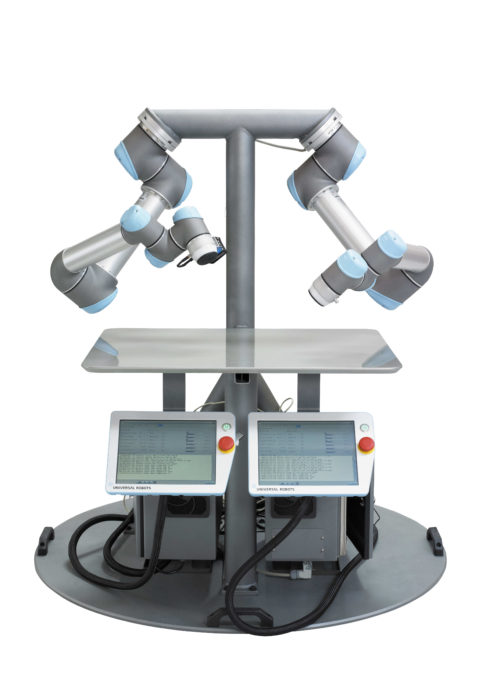Here comes the so-called collaborative robots. User-friendly collaborative robots or “cobots” will become a key driver in the automation market, according to World Robotics Report 2016 released by International Federation of Robotics
The report predicts the worldwide annual sales of industrial robots to increase by at least 13 percent on average per year from 2017 to 2019.
The report said human and robot collaboration will increase production efficiency and quality and allow humans to work safely side-by-side with industrial robots.
Industries predicted to adopt cobots at an increasing rate include automotive, the plastics industry, electronics assembly and the machine tool industry. These are all key sectors in Southeast Asia, and where Universal Robots is seeing strong traction.
“UR robots are now increasingly deployed on the auto assembly line, working hand-in-hand with employees, by relieving them of ergonomically unfavourable tasks. We have recent case studies documenting how cobots quadrupled injection moulding production, and how our new UR3 table-top robot is now a sought-after automation tool for light assembly, such as circuit board handling,” said Chief Commercial Officer of Universal Robots, Daniel Friis.
“Our installed base of more than 10,000 cobots worldwide illustrates the dramatic growth potential of this game-changing automation technology. We enable small and medium-sized enterprises to optimise their competitiveness on the global stage with an industry leading payback period,” he said.
In Asia, strong, continued robot growth is forecasted by IFR, with the recent report suggesting a rise of 18 percent in robot supplies this year, while installations are expected to rise by 15 percent.
China is predicted to remain the main driver of robot growth, expanding its dominance with almost 40 percent of the global robot supply being installed in China by 2019.
“Asia is a strong focus area for Universal Robots. We opened a Shanghai subsidiary in 2013 and are constantly expanding our distributor network in the regions where customers are increasingly using our cobots to optimise product quality and automate repetitive tasks that many manufacturers have difficulty staffing with manual labour,” said Friis.
According to Friis, the demand for consumer goods across global markets is pushing manufacturers to produce innovative, high-quality products more quickly, consistently, and sustainably around the world.
To support the growing demand for flexible cobot solutions, Universal Robots recently launched Universal Robots+, an online showroom for end-effectors, software, peripherals and accessories from the UR ecosystem of 3rd-party developers that are optimised to work flawlessly with UR robots. This allows UR’s integrators, distributors and customers to hit the ground running when completing their next UR robot installation.









